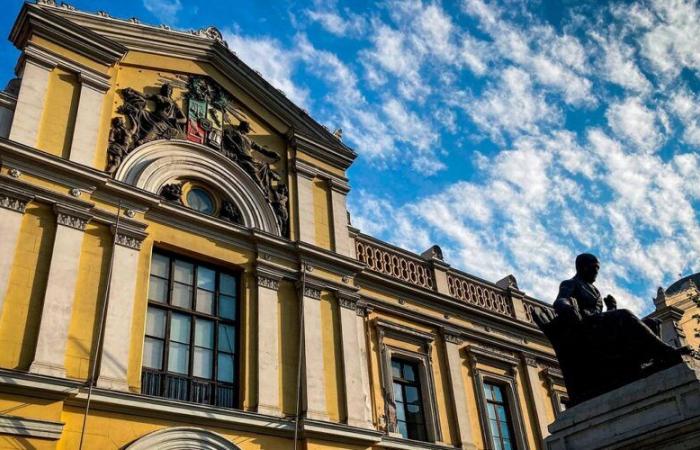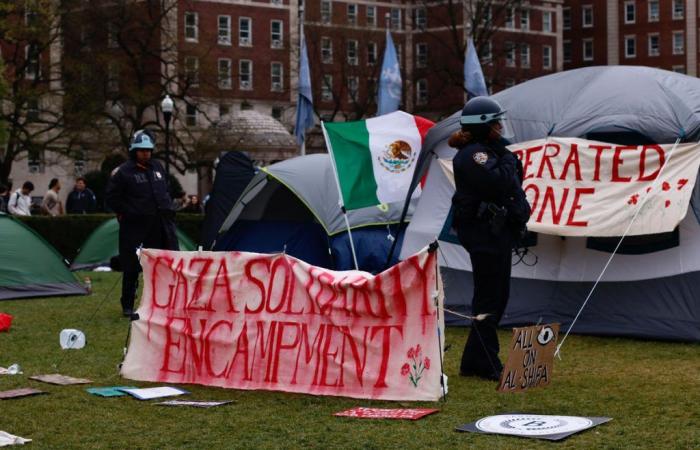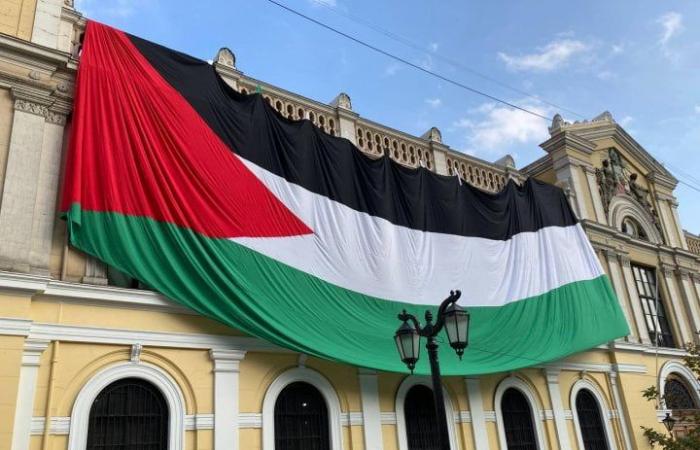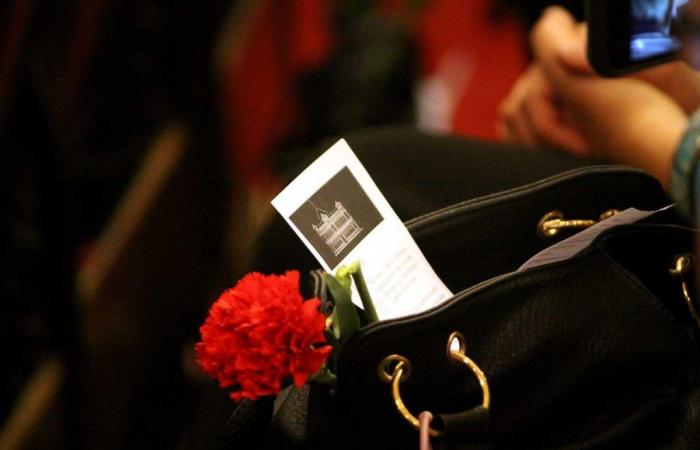In April of this year, a global university movement of solidarity with the Palestinian people gained strength. Their demand consisted of the termination or suspension of cooperation agreements with Israeli universities. In the case of the University of Chile, the authorities have opposed it, based on different arguments: the role of universities in periods of crisis, the priority of academic work and the need not to cut off existing networks of international collaboration. It has also been argued that ending the agreements would have no practical impact and that the critical voices of Israeli academics must be protected, so that they can speak out. Are these reasons, adjusted to the academic work and purposes of any university, sufficient for the University of Chile to refuse to end the agreements?
The university movement of solidarity with Palestine originates from the international movement that acted to end apartheid in South Africa. The actions to block South Africa in different international bodies, including culture and sport, managed to create international awareness to combat racism. It is no coincidence that, until now, South Africa is the most active country in requesting the condemnation of Israel in international bodies such as the International Court of Justice, since it sees its history represented in that of the Palestinian people. President Boric announced in his public account that Chile will support South Africa in this action, consistent with the commitment that the country has had to human rights since the creation of the United Nations, with the exception of the period of the dictatorship.
The first calls to break with universities in Israel occurred at the most prestigious universities in the United States, Canada and Europe. Little by little they are achieving positive results. In Spain, for example, the public universities of Barcelona, Granada, Jaén, Pablo Olavide (Seville) and Oviedo, and those of the Basque country and the public university of Navarra have ceased their agreements. During this global university movement, Spain decided to recognize the Palestinian State, in coordination with Ireland and Norway. Colombia broke diplomatic relations with Israel and Brazil withdrew its ambassador. These are gestures that do not immediately change the lives of the Palestinians, but express the determined intention of contributing to a two-state solution that coexists in peace.
In Chile, the movement began on the first day of May. First, the PUC Student Federation demanded that its Rector end the agreements with three Israeli universities. Later, the Student Federation of the University of Chile made the same demand to its Rector. Since May 15, the Central House has hosted a “camp.” The USACH and UMCE students did the same, whose authorities promoted a dialogue with the community after which they decided to suspend the existing agreements.
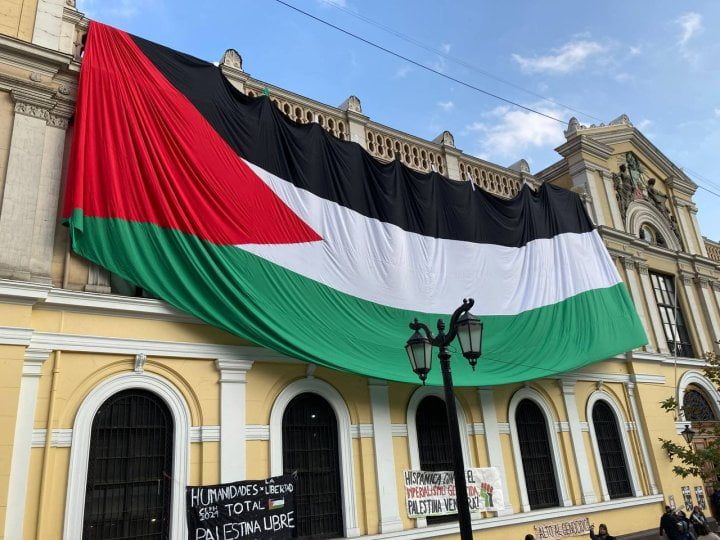

There is international consensus that Israel’s response to the Hamas terrorist attack on October 7 last year, which left around 1,200 dead, has been extremely disproportionate and that we are witnessing a genocide. It is estimated that more than 35 thousand Palestinians have been killed. Israel has bombed residential areas, destroyed hospitals, leaving thousands of sick and wounded without health care, and used hunger as a weapon of war. These actions constitute violations of international humanitarian law. It is the stark expression of the violation of human rights that the Palestinian people have suffered for 70 years, demonstrated in numerous reports and statements by international agencies.
The difference, this time, is the evident brutality and magnitude of the people killed or mutilated, the vast majority of them children, women, elderly people, a civilian population that has no relationship with Hamas. The United Nations has indicated that the number of Palestinian boys and girls murdered in the last five months is greater than all the boys and girls who have died in all the wars that have occurred in the world, in the last four years.
The Dean of the Faculty of Philosophy and Humanities of the University of Chile decided, on May 20, to terminate their agreements. This is a clear position condemning the genocide, giving an ethical meaning to international academic collaboration. In response, the Rector’s Office sent a statement to the university community, in which he stated that the agreements between universities seek to “promote academic exchange” and thereby “contribute to the generation of knowledge networks at a global level.” The statement referred to Israel’s “attacks” on Palestinian territory and the need to show solidarity with the “Palestinian cause.” However, he added that this should not translate into a “cancellation of the university communities of Israel”, equating, curiously, the situation of Israeli universities with that experienced by the University of Chile during the dictatorship.
A subsequent statement from the University Council ratified the Rector’s position. However, it briefly recognized the serious violations of the human rights of the Palestinian people, avoiding blaming the State of Israel.
Both statements defend the academic exchange of the University of Chile with Israeli universities. They say nothing about Palestinian academics, nor about students at Palestinian universities. These are more than ten universities devastated by Israel’s barbarism.
The statutes of the University of Chile include as one of its principles “the training of people with a sense of ethics, civic and social solidarity.” The Institutional Development Plan (PDI) 2017-2026 indicates that one of its values and principles is the “unrestricted respect and promotion of human rights in all its dimensions.”
Consistently, the University of Chile’s commitment to human rights has been expressed in various actions. One of the most significant is the delivery of posthumous degrees to students who were victims of the dictatorship, during the administration of Rector Vivaldi.
Although the University of Chile awards professional degrees to those who pass the entire curriculum, this academic requirement was not an impediment. Nor was the fact that the decision had no practical impact – those who received those titles were killed or made to disappear and will never be able to practice their professions. Delivering posthumous titles constituted a symbolic measure of reparation for the victims, a message to the country and the world that human rights violations are unacceptable. A necessary act of Memory so that the barbarism experienced in Chile does not occur again in this country or in any other.
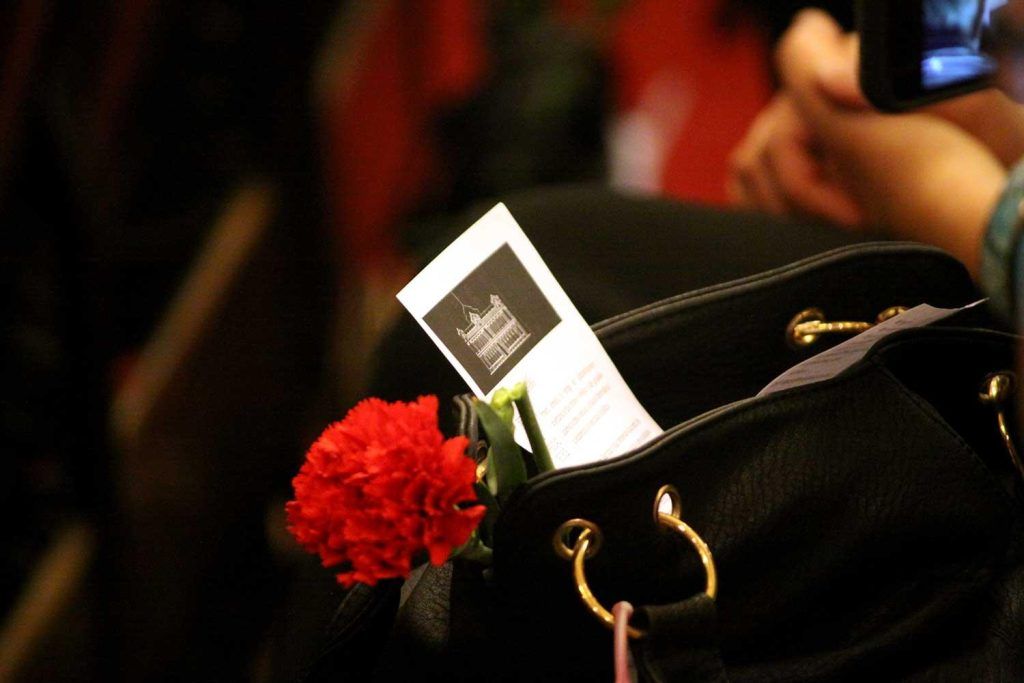

The International Human Rights System emerged after World War II, with the purpose of protecting basic standards for life in common and seeking world peace. This has not prevented the existence of war conflicts and violations of human rights. Just think about the “ethnic cleansing” that occurred in Rwanda and Yugoslavia, as well as the violation of human rights that Palestinians have suffered since the installation of the State of Israel in their territory in 1947.
In the 21st century, a war occurs in Europe and we witness on television a massacre in the Middle East, which shows no signs of slowing down. The threat of a third world war or a nuclear offensive is present, and far-right movements threaten the civilizational advances that cost so much to achieve in the 20th century, including the International Human Rights System. The warning voice of the young people of the world to end the Palestinian genocide replicates what other young people did to end the Vietnam War and, more recently, with movements such as “me too” or “black lives matter”, which acquired global importance. , managing to influence and raise awareness, from universities, radiating transformations to society as a whole. This call is a basic act of humanity and sows a light of hope for the future.
The United Nations rapporteur on Human Rights in the occupied Palestinian territories, Francisca Albanese, has asked the international community to impose sanctions on Israel, as the only possible way to stop the extermination of an entire people. This call is urgent, as Israel announced that its offensive in Gaza will continue for at least seven more months. Institutions that have an explicit commitment to human rights have the duty to carry out all actions within their reach.
No academic collaboration agreement has greater moral value than the right to life and the right of a people to exist. Ending the agreements does not prevent academics and academics from Israeli universities from joining their critical voices to the international movement.
It is no longer possible to bring back the lives of the more than 35,000 Palestinians murdered to date, but we can act so that the victims do not continue to increase. The international community, especially institutions that have explicitly committed to “respect and unrestricted promotion of human rights in all their dimensions,” such as the University of Chile, face the historical challenge and moral duty of carrying out all the actions that are within their reach to help stop this massacre.
As citizens and academics, we trust that we still have time to promote instances of dialogue and listening and take a position for human rights, life and the right of people to exist, as a guide to our academic work.

